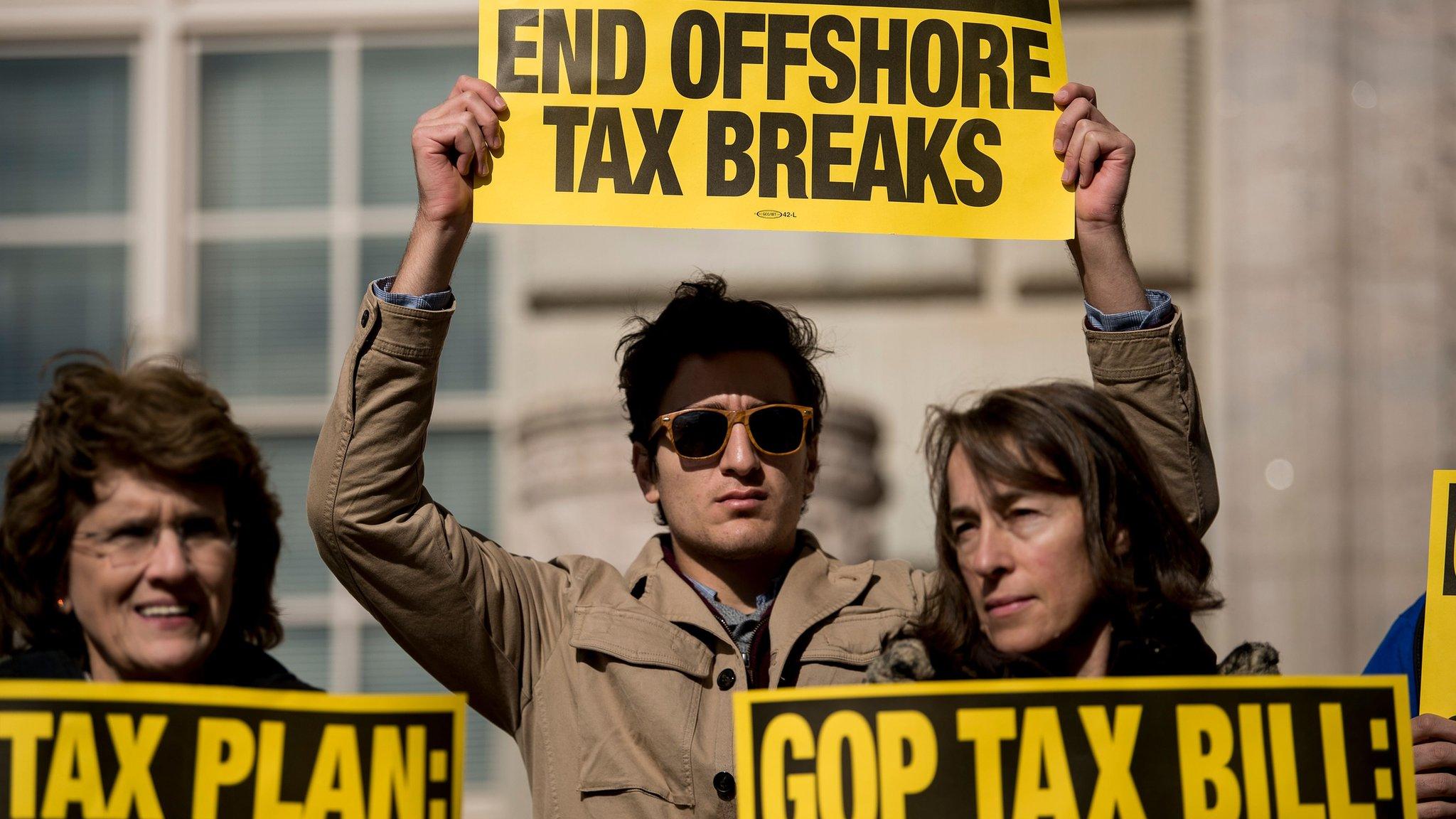Trump hails 'largest tax cut' in US history
- Published
US tax bill: the winners and losers
US President Donald Trump has hailed sweeping tax reforms after they were given final approval by Congress, despite fierce criticism by Democrats.
"We are making America great again," a jubilant Mr Trump said.
He is expected to sign his first major legislative achievement - the biggest rewrite of the US tax code in a generation - in the coming days.
The bill slashes taxes for corporations and the wealthy, while offering mixed, temporary relief to working people.
Democrats have labelled the Republican tax bill "government for sale", with prominent Senator Elizabeth Warren describing it as a "heist".
Allow X content?
This article contains content provided by X. We ask for your permission before anything is loaded, as they may be using cookies and other technologies. You may want to read X’s cookie policy, external and privacy policy, external before accepting. To view this content choose ‘accept and continue’.
Hosting Republican leaders at the White House, President Trump said: "This will indeed be a very big day when people look back at our country."
He thanked congressional leaders for pushing through what he called "the largest tax cut in the history of our country".
Republican House Speaker Paul Ryan praised Mr Trump's "exquisite presidential leadership" for the success of the bill.
Earlier, in a statement, Mr Trump said: "I promised the American people a big, beautiful tax cut for Christmas. With final passage of this legislation, that is exactly what they are getting."
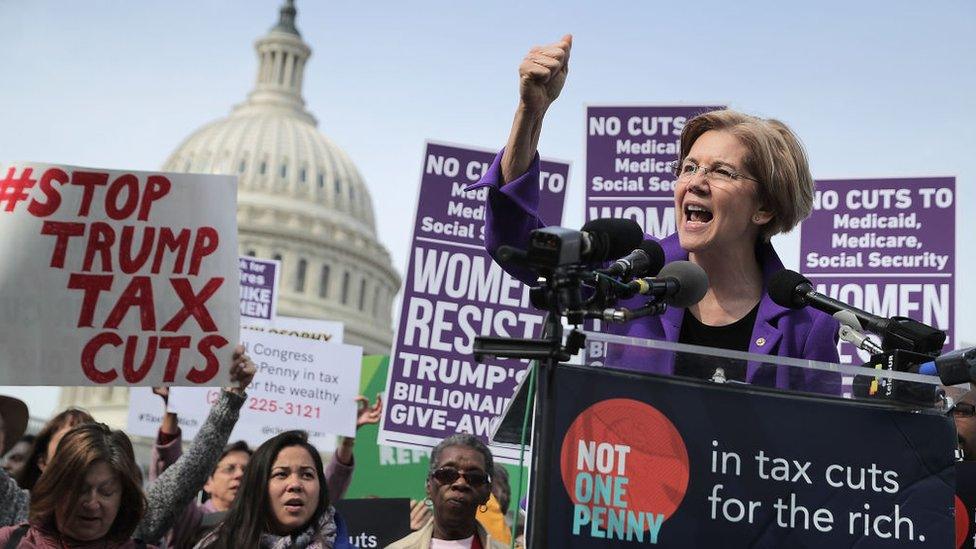
Elizabeth Warren, like every other Democratic senator, opposed the bill
Because of a procedural glitch, the bill had to be voted on for a second time in the Republican-dominated House of Representatives. It passed by 224 votes to 201 on Wednesday afternoon.
Democrats say that error was caused by Republicans rushing the most sweeping overhaul of the tax system since 1986 through Congress.
In an often secretive process, no public hearings were held and multiple last-minute amendments that were pushed by lobbyists cropped up in the final version.
The unpopular bill is likely to be a major issue during next year's mid-term congressional elections.
Fifty-two per cent of adults said they opposed the tax plan, while only 27% supported it, according to a Reuters/Ipsos poll.
Who wins and who loses?
Non-partisan analysts say the greatest beneficiaries of the package will be the super-wealthy, multinational corporations and the commercial property industry.
In the immediate future, the plan will see the vast majority of taxpayers having lower tax bills, but those cuts expire in 2025.
By 2027, the Tax Policy Center estimates the overall change would be negligible.
And 53% of taxpayers would face higher bills, many of them in the lower income brackets.
Paul Ryan's exuberant gavelling reflects how long he's pushed for tax reform
The bill is projected to add $1.5tn (£1.1tn) over the next decade to the $20tn US debt, which Mr Trump promised last year he would eliminate.
But Republicans argue it will boost economic growth.
The legislation reaches beyond fiscal matters to tick off a wish list of conservative priorities.
It strikes a serious blow to Obamacare, scrapping the fine levied on Americans who do not buy health insurance.
The Congressional Budget Office says this will increase premiums for people who have medical coverage.
The bill also opens Alaska's Arctic National Wildlife Refuge to oil and gas drilling, a major defeat for environmentalists.
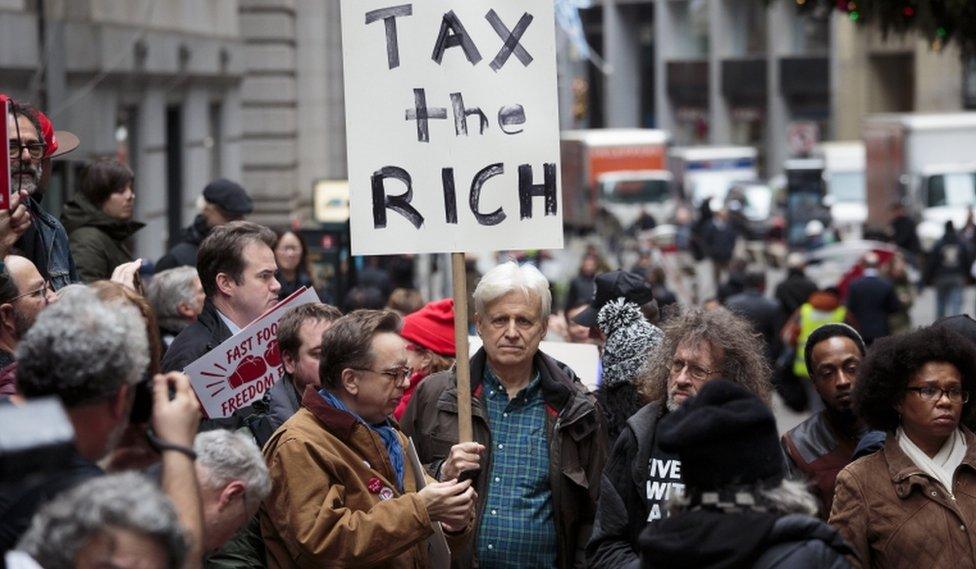
Demonstrators in New York rallied in Wall Street on Tuesday
What do the Democrats say?
As the final vote approached in the Senate overnight, the chamber's Democratic leader Chuck Schumer scolded Republicans for talking during his closing argument.
"This is serious stuff," the New York senator said. "We believe you're messing up America."
Among the most outspoken critics are those progressive figures in the party often tipped as possible 2020 presidential contenders.

Mr Trump has called the bill a Christmas gift to the middle class
Massachusetts Senator Elizabeth Warren tweeted: "Let's call this out for what it is: Government for sale."
Senator Kirstin Gillibrand accused Republicans of having "put their donors before hardworking middle-class families".
Senators Cory Booker, of New Jersey, and Kamala Harris, of California, said the bill was a "travesty".
And Tim Kaine, the Virginia senator who was Hillary Clinton's running mate last year, branded the legislation "highway robbery".

Analysis: One final swoop
By Anthony Zurcher, BBC North America reporter
It wasn't exactly easy, but President Trump now has his signature legislative achievement. The self-styled dealmaker-in-chief was finally able to flex his party's majority muscle, overcoming internal dissent to accomplish some long-sought political goals.
What one Congress can do another can undo, of course, and the task ahead for Republicans is selling a sceptical public on the benefits of their plan.
While they may argue that Americans will come around once they see lower tax bills, many may have already made up their mind.
Like Obamacare eight years ago, this tax legislation was passed by partisan muscle alone. And like that law, many Americans view the legislation as largely benefitting others. They will be difficult to convince otherwise.
Repealing key provisions of this tax law will be as uniting for Democrats as healthcare repeal was for conservatives.
President Trump and Republicans have their victories. They will have to fight to keep them.
- Published15 October 2020
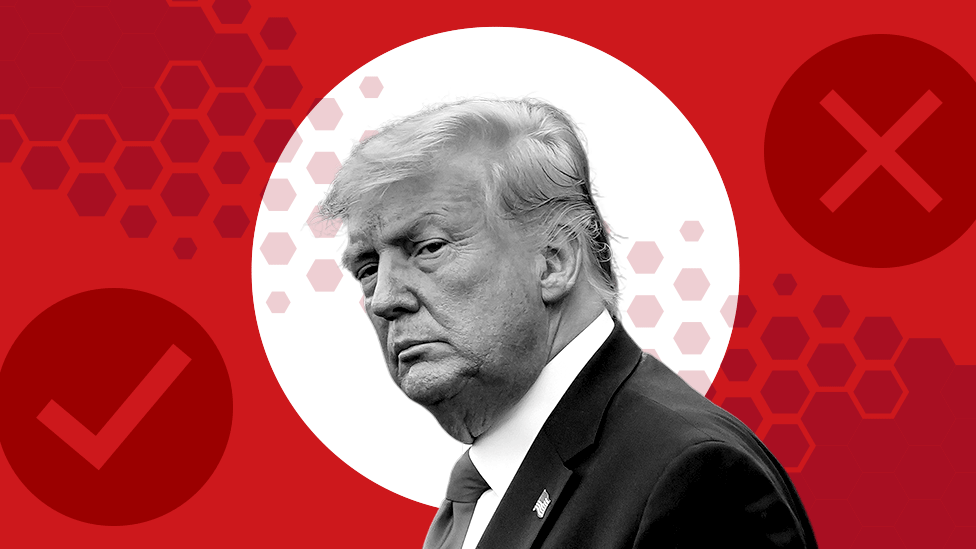
- Published19 December 2017
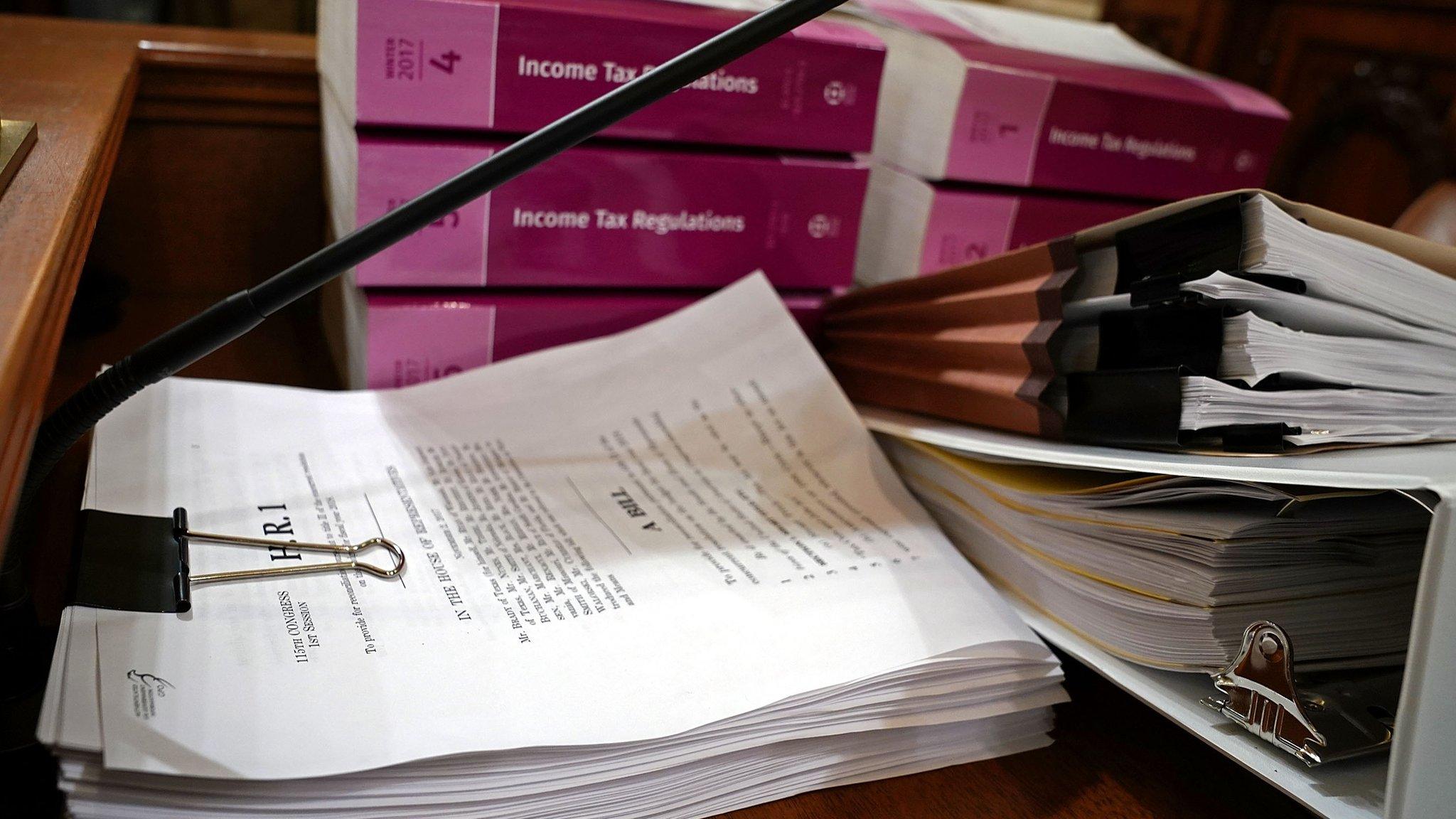
- Published19 December 2017
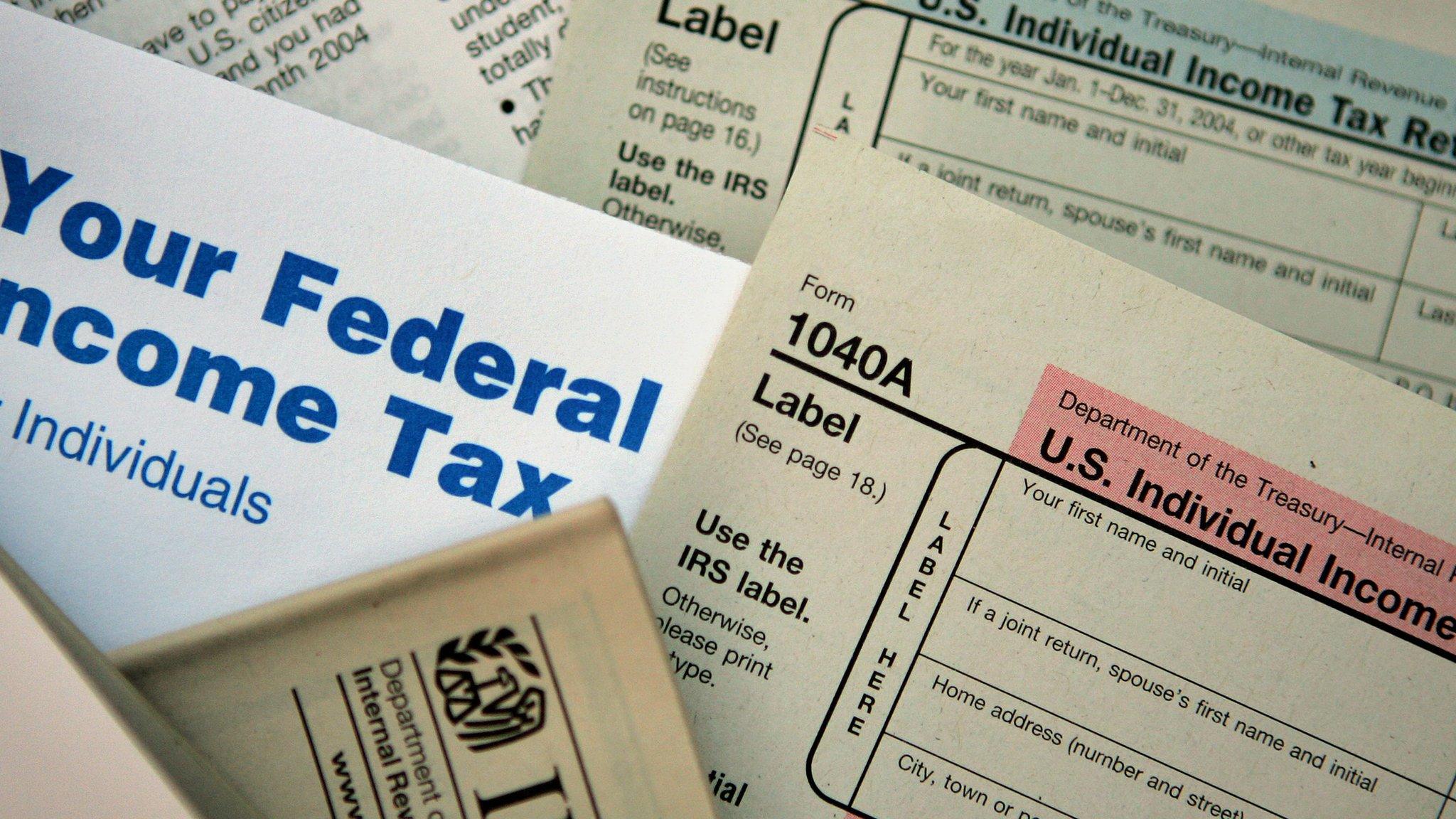
- Published20 December 2017
- Published19 December 2017
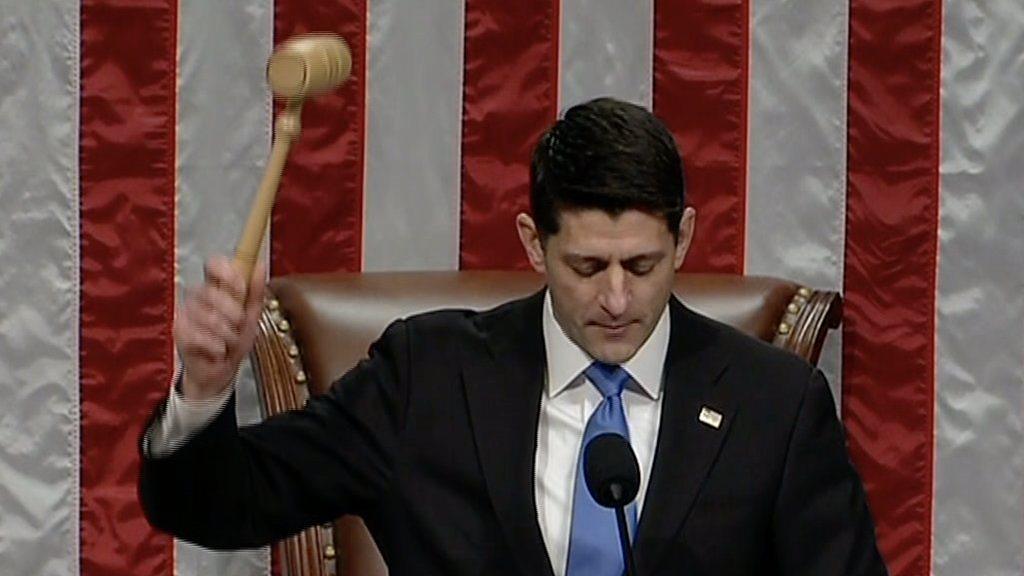
- Published19 December 2017
